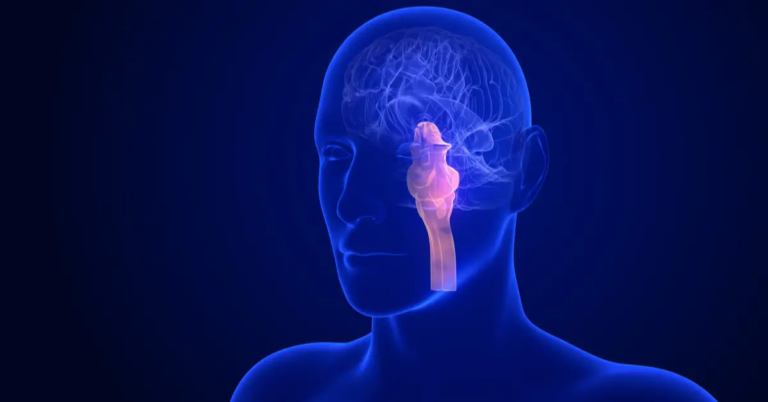A quick walk or drive through any city will reveal that the most inexpensive and convenient foods available to us are not the healthiest choices.
Supplements are great for supporting specific health goals. They are, however, not a magic solution to compensate for poor nutrition and unhealthy habits. Further, not all supplements are created equal, and it’s crucial to choose wisely.
A recent study by researchers from the University of California, San Diego, is promoting caution against the use of certain dietary supplements.
It puts under the spotlight supplements that contain the amino acid serine as a remedy for Alzheimer’s disease. [1, 2]
Spotlight on Supplements Containing Serine
Elevated levels of an enzyme called phosphoglycerate dehydrogenase (PHGDH) in the blood of older adults could be an early warning sign of Alzheimer’s disease. The study provides new evidence to support this claim.
Serine supplements have been said to improve brain function and sharpen thinking abilities. Therefore, many people use these over-the-counter products to help prevent or treat dementia.
Yet, according to UC San Diego researchers, the amino acid serine may actually be contributing to the onset of dementia. Their findings were published on May 3, 2022, in the journal Cell Metabolism. [1]
Because PHGDH is a key enzyme in the production of serine, the increased PHGDH expression found in Alzheimer’s patients suggests that the rate of serine production in the brain is also increased — therefore, taking more serine may be counterproductive.
Uncovering the Dark Side of Serine
The researchers examined genetic data collected from post-mortem human brains of subjects in four different research cohorts, each of which included 40 to 50 people aged 50 and up.
The participants included Alzheimer’s patients, “asymptomatic” individuals — without cognitive problems who had early signs of Alzheimer’s changes in their brain tissue upon post-mortem analysis — and healthy controls.
PHGDH expression was found to be higher in Alzheimer’s patients and asymptomatic individuals in all four cohorts when compared to healthy controls. Furthermore, expression levels increased as the disease progressed. This pattern was also seen in two different Alzheimer’s disease mouse models.
The researchers also compared the subjects’ PHGDH expression levels to their scores on two different clinical assessments:
- Dementia Rating Scale – Assesses a person’s memory and cognitive ability
- Braak Staging – Assesses the severity of Alzheimer’s disease based on the pathology of the brain
The findings revealed that the higher the expression of PHGDH in the brain, the lower the scores.
“Anyone looking to recommend or take serine to mitigate Alzheimer’s symptoms should exercise caution,” cautions co-first author of the study, Riccardo Calandrelli, in a university release. [3]
Research Prompts a Warning
The new study builds on earlier work by UC San Diego bioengineering professor Sheng Zhong and colleagues that first identified PHGDH as a potential blood biomarker for Alzheimer’s disease. [4]
The researchers analyzed blood samples of older adults and found a steep increase in PHGDH gene expression in Alzheimer’s patients, as well as in healthy individuals approximately two years before they were diagnosed with the disease.
The results at that time were promising, and the researchers were curious if this increase could be linked back to the brain. In this new study, they show that this is indeed the case.
“It’s exciting that our previous discovery of a blood biomarker is now corroborated with brain data,” said Zhong. “Now, we have strong evidence that the changes we see in human blood are directly correlated to changes in the brain in Alzheimer’s disease.”
He added, “The fact that this gene’s expression level directly correlates with both a person’s cognitive ability and disease pathology is remarkable. Being able to quantify both of these complex metrics with a single molecular measurement could potentially make diagnosis and monitoring progression of Alzheimer’s disease much simpler.” [3]
Alzheimer’s Research Holds Hope
Many people still choose to take supplements for convenience, but taking too much or taking them for too long could be harmful. Your supplement’s effectiveness and safety may depend on your situation. [5]
Although much research has been conducted on supplements — including over $2.4 billion in funding from the National Institute of Health since 1999 — new findings and breakthroughs are constantly emerging. Proper awareness is always essential when choosing and taking supplements. [6]
The research findings have implications for supplements containing serine, which claim to improve memory and cognitive function. Zhong and his team aim to know how changing PHGDH gene expression affects disease outcomes. The method could lead to new Alzheimer’s treatments.
Genemo, a San Diego-based biotechnology startup co-founded by Zhong, is working to develop a PHGDH blood test for the early detection of Alzheimer’s disease. [2, 3]
Continuous research can make us all more confident that we are on the right path to health satisfaction. By signing up for Dr. Nandi’s Newsletter, you can keep up with new research and learn secrets to better health.
Armed with a basic understanding of nutrition, you can then understand more about your vitamin, mineral, and amino acid needs.

My Personal RX: Harnessing the Power of Supplements
Nutrition is complicated and expands to the entire process of selecting food, cooking it, and then the processes of our bodies digesting it.
Supplements can support our dietary needs when we are short on time or cannot get access to healthy, fresh, or whole foods.
Plus, taking supplements every day for the prevention of many diseases provides extra protection for our health we would not have otherwise.
However, your supplements are only as good as your diet and health habits. Because our overall health is strongly linked to our intestinal and gut health — which has now been directly linked to brain health — it’s always good to discuss your options with your healthcare provider.
By signing up for Dr. Nandi’s Newsletter, you can get free weekly updates delivered straight to your mailbox on lifestyle, gut health, and mental health.
Sources:
- PHGDH expression increases with progression of Alzheimer’s disease pathology and symptoms: Cell Metabolism
- Warning About Brain-Boosting Supplements After Alzheimer’s Disease Biomarker Discovery
- Study of Promising Alzheimer’s Marker in Blood Prompts Warning About Brain-Boosting Supplements
- Discovery of new biomarker in blood could lead to early test for Alzheimer’s disease
- Do I need vitamin supplements? – NHS
- The Truth About Supplements: 5 Things You Should Know




















